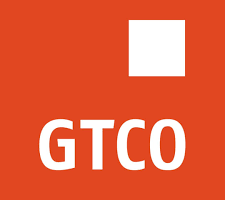Independent shareholders in the banking industry have revealed that a one-size-fits-all approach to capital requirements for all banks in the country could inadvertently stifle smaller banks, hindering their ability to serve local communities and contribute to regional economic development.
This is in reaction to plans by the apex bank as disclosed by its governor, Olayemi Cardoso to raise Banks capital requirement in order for the banks to be able to service a $1 trillion economy.
Cardoso had given the indication recently during his keynote speech at the 58th Annual Chartered Institute of Bankers Dinner.
National Co-ordinator of the Independent Shareholders Association of Nigeria, (ISAN) Mr. Moses Ibrude acknowledged the potential for a well-managed recapitalization to strengthen overall stability and resilience of the banks, but said implementing a tiered system approach will safeguard the existence of smaller, regional players within the banking landscape.
According to him, using the tiered system would categorize banks based on their operational scope (regional, national, international) and assign corresponding capital requirements.
“This tailoring ensures that capital requirements are proportionate to operational risks and promotes a level playing field for banks within each category,” he said.
“The government should implement robust anti-money laundering and know-your-customer (AML/KYC) regulations, in addition to effective oversight mechanisms,” he said.
In his submission, President of the New Dimension Shareholders Association, Mr. Patrick Ajudua said shareholders are not against recapitalization of the bank as the last exercise was done in 2004.
Ajudua noted that considering the policy stand of the CBN in achieving a GDP of $1 trillion by 2030 in strategic areas, it behoves on Nigeria bank as a key policy driver of the goal to recapitalize and play a major role.
“But government must provide the needed framework to drive growth as the current GDP growth rate of 2.5 per cent can’t sustain the drive for a $1 trillion economy which requires a GDP growth rate of 15 per cent,” he said.
Mr. Joseph Bamidele, an independent shareholder, believes that increased capital is indispensable for financing large-scale projects, especially in light of the government’s ambitious goal of achieving a $1 trillion economy within a few years.
Recognizing the crucial role of smaller, regional banks in the financial landscape, he emphasizes the need for a balanced approach that avoids regulating them out of existence.




